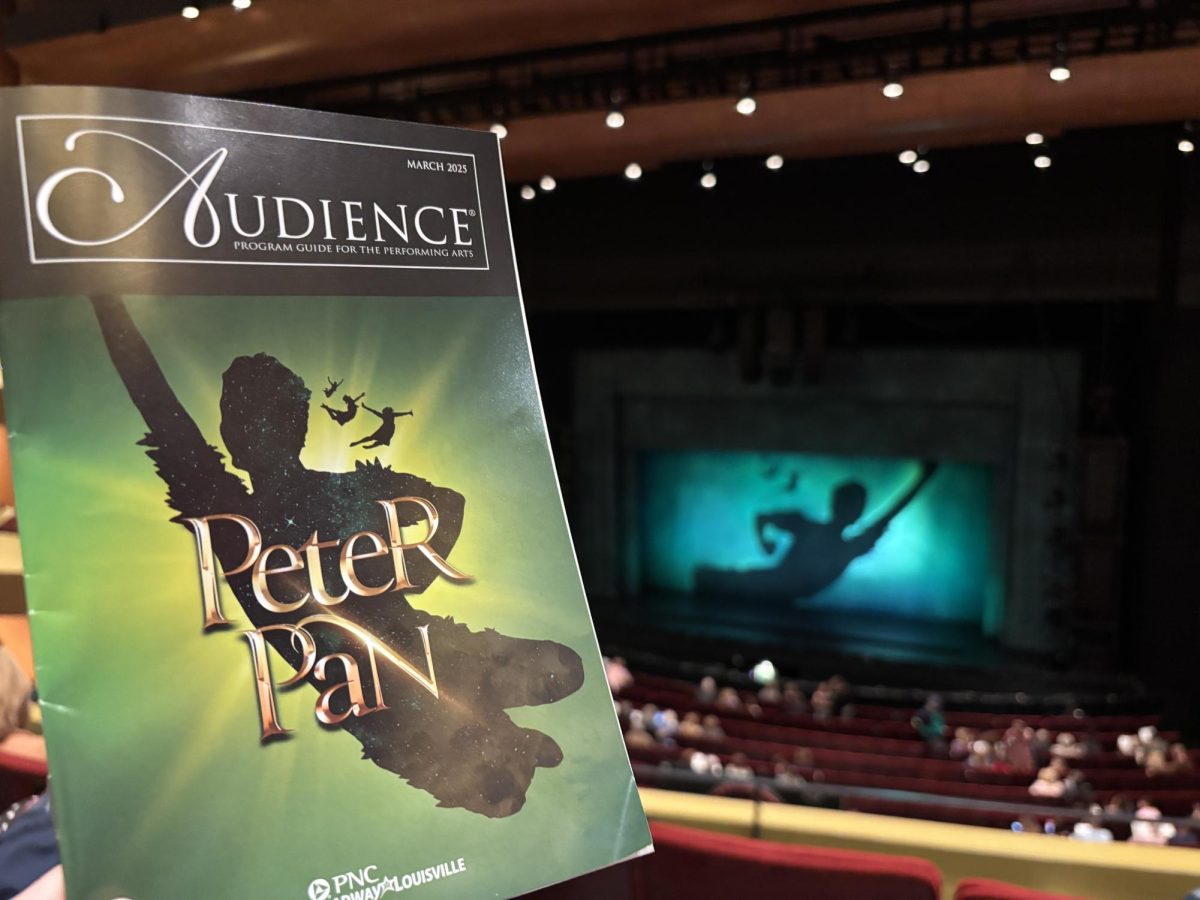“Les Misérables” (or “Les Mis” for short), the award winning musical based on the novel of the same name opened at the Kentucky Center for the Performing Arts on Oct. 1. Though the novel was written in 1862, many of its themes still ring true today. This production did an excellent job of portraying those themes in an entertaining way, leaving the audience to ponder topics such as redemption, morality, and the struggles of the working class. Reader be warned, this review contains some spoilers for the show.
The story focuses on Jean Valjean, played by Nick Cartell. After spending 19 years in prison for stealing bread, Valjean is released on parole. He then decides to break his parole and assume a new identity, subsequently spending years running from the relentlessly persistent Inspector Javert, played by Nick Rehberger. Along the way, Valjean meets Fantine, played by Lindsay Heather Pearce, a single mother who faces harassment and must resort to extreme measures to provide money for the care of her daughter. Valjean promises Fantine that he will take care of her daughter, Cosette, who is played by Emerson Mae Chan and Greta Schaefer. Nearly a decade later, Valjean and Cosette, now played by Delaney Guyer, find themselves in Paris. A group of young revolutionaries are preparing for rebellion following the death of General Lamarque. One of these revolutionaries, Marius, played by Jake David Smith, falls in love with Cosette. Unfortunately, with the reappearance of Inspector Javert, Valjean insists that he and Cosette must leave Paris. As the rebellion looms, characters will find their priorities and worldviews tested and forever changed.
The morality of the law is frequently questioned in this story. Valjean served 19 years in prison as a punishment for stealing bread, an extreme punishment for a minor crime. Valjean’s redemption from a thief to a man who does whatever he can to help others is a key part of the story. Valjean saves a stranger from being crushed under a fallen cart, and raises Cosette as if she were his own child. Inspector Javert struggles to reconcile his strict belief in the law with the fact that Valjean redeems himself into a good man. In Javert’s eyes, Valjean’s past as a criminal brands him as an unethical man for life and he seeks to punish Valjean for breaking his parole. While Javert wants to believe that there is a fine line between good and evil, Valjean shows that people do not fall into such defined categories and are capable of change over time.
In today’s world, many ex-convicts struggle to reintegrate with society after they are released from prison. Employers aren’t always eager to hire those with criminal pasts, making finding a job difficult. Valjean’s character shows the good a person can go on to do if they are forgiven for their prior mistakes and given a second chance.
“Les Mis” also explores morality through contrasting characters’ various approaches to making money. Fantine tries to get by honestly, and only turns to less reputable means when she has nowhere else to go. Even then, she despairs over what she has to do to be able to survive and provide for her daughter. This contrasts with the Thénardiers. Played by Victoria Huston-Elem and Matt Crowle, the Thérnardiers are disreputable innkeepers who have been taking care of Cosette for Fantine before Valjean takes her in as his own. They treat Cosette horribly and are unapologetic in their swindling of the customers at their inn. Though both Fantine and the Thénardiers do immoral things, Fantine is seen as noble compared to the crooked Thénardiers. This is because Fantine is a selfless character who is willing to do whatever she has to do in order to provide for Cosette. On the other hand, the Thénardiers have no regard for anyone but themselves. “Les Mis” demonstrates the struggles that the working class face, simultaneously criticizing the society that put them in such a position and those who would greedily exploit their peers who face the same struggles as they do.
The actors’ performance in this production of “Les Mis” excels at bringing to life a show with many layers of meaning and emotion. Cartell’s take on Valjean highlights the emotional transformation of the character, with impressive, powerful songs that provide the audience with an understanding of what the character is going through. Pearce’s Fantine perfectly delivers “I Dreamed a Dream,” a heartbreaking ballad telling Fantine’s story. The finale of Act One, “One Day More,” shows all of the characters coming together to sing about what is to come. The result is a beautiful mixture of sound that sends the audience to intermission with high expectations for the second act.
The staging of the show is also used to tell the story, conveying power dynamics among the characters. At the beginning, Valjean is often kneeling before Javert, demonstrating the differences in the two men’s power and status. When Valjean has to reveal his identity to a court, he stands before a judge. The judge’s platform is an exaggerated distance above the stage, with an enormous French flag and a bright white light behind him. This lends an almost religious quality to the scene, representing the ultimate power the government has over its citizens. The technique of showing instead of telling is an effective one, and this production certainly uses it to its advantage.
“Les Mis” is a story of many things. It is a story of love, revolution, and redemption. Above all else, “Les Mis” is a story of hope. After nearly three hours of songs that elicit both laughter and tears, this show is sure to send the audience into the world with a new perspective. The show runs until Oct. 6, and tickets can be purchased on the Kentucky Center for the Performing Arts website.








